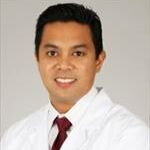Education
University of Vermont College of Medicine, Doctorate of Medicine; University of California Los Angeles, Bachelor of Science in Cell and Molecular Biology
Background
Dr. Gregory Idos is a gastroenterologist with specialized training in hereditary cancer syndromes. Having trained in Boston at Brigham and Women’s Hospital and Dana Farber Cancer Center under the direction of national experts, Dr. Idos has an extensive background in caring for patients with hereditary colorectal cancer syndromes, notably Lynch Syndrome and familial adenomatous polyposis (FAP). Currently, he works with Stephen Gruber MD, PhD, MPH, Director of USC Norris Comprehensive Cancer Center, as part of the Norris Cancer Genetics Clinic. The Cancer Genetics Clinic specializes in care for persons with a personal or family history of cancer who may benefit from genetic testing and counseling to understand and manage their risk of cancer. In addition, Dr. Idos’ research interest is focused on the study of gastrointestinal cancer and cancer chemoprevention. Currently, he directs studies aimed at understanding the use of genetic information for the overall risk reduction and prevention of cancer
Background
Dr. Gregory Idos is a gastroenterologist with specialized training in hereditary cancer syndromes. Having trained in Boston at Brigham and Women’s Hospital and Dana Farber Cancer Center under the direction of national experts, Dr. Idos has an extensive background in caring for patients with hereditary colorectal cancer syndromes, notably Lynch Syndrome and familial adenomatous polyposis (FAP). Currently, he works with Stephen Gruber MD, PhD, MPH, Director of USC Norris Comprehensive Cancer Center, as part of the Norris Cancer Genetics Clinic. The Cancer Genetics Clinic specializes in care for persons with a personal or family history of cancer who may benefit from genetic testing and counseling to understand and manage their risk of cancer. In addition, Dr. Idos’ research interest is focused on the study of gastrointestinal cancer and cancer chemoprevention. Currently, he directs studies aimed at understanding the use of genetic information for the overall risk reduction and prevention of cancer

